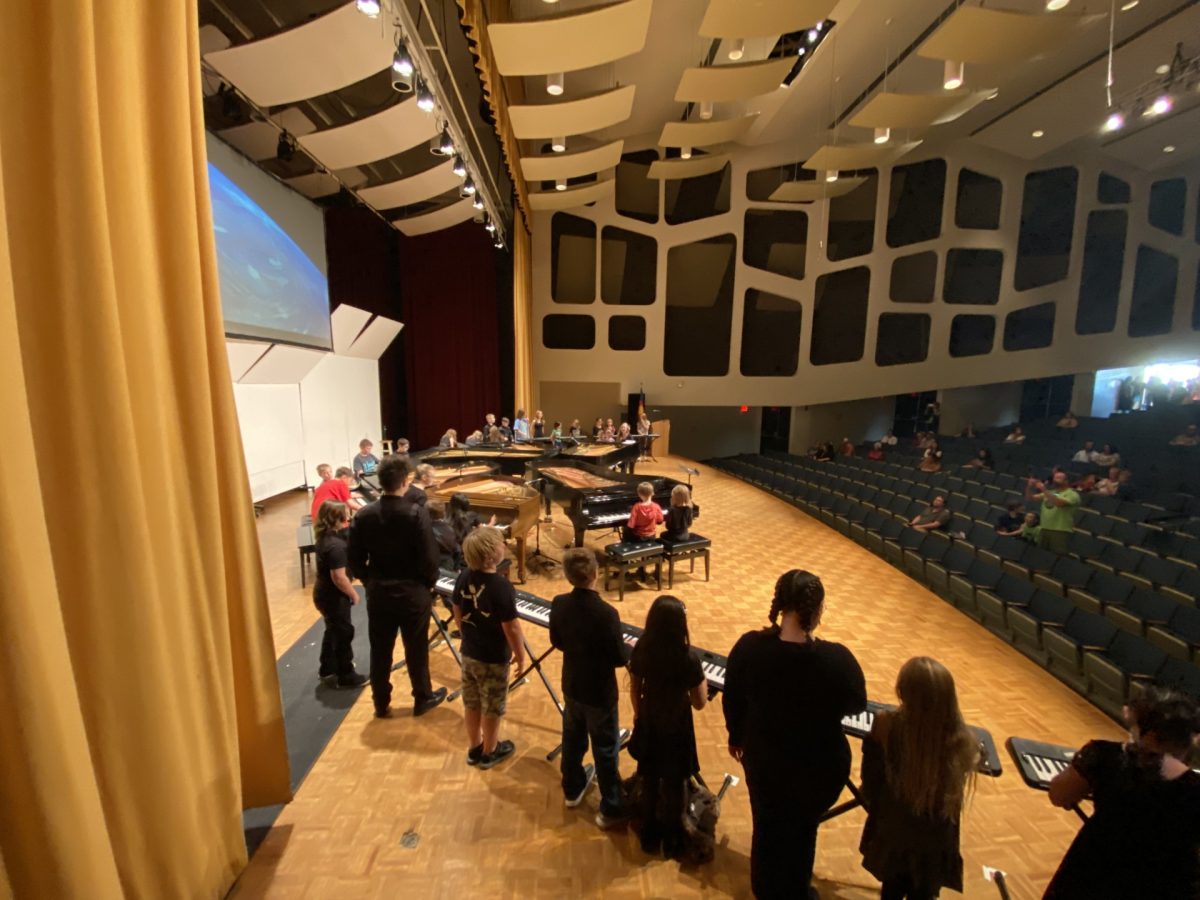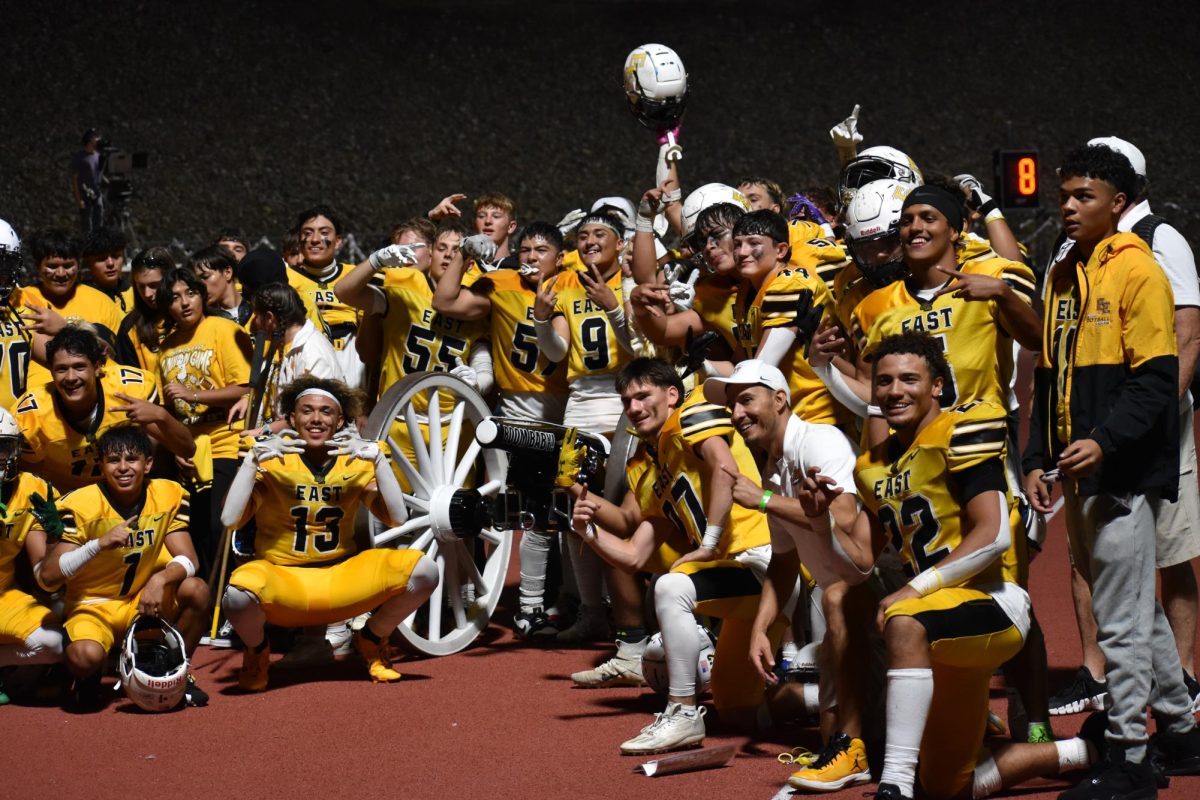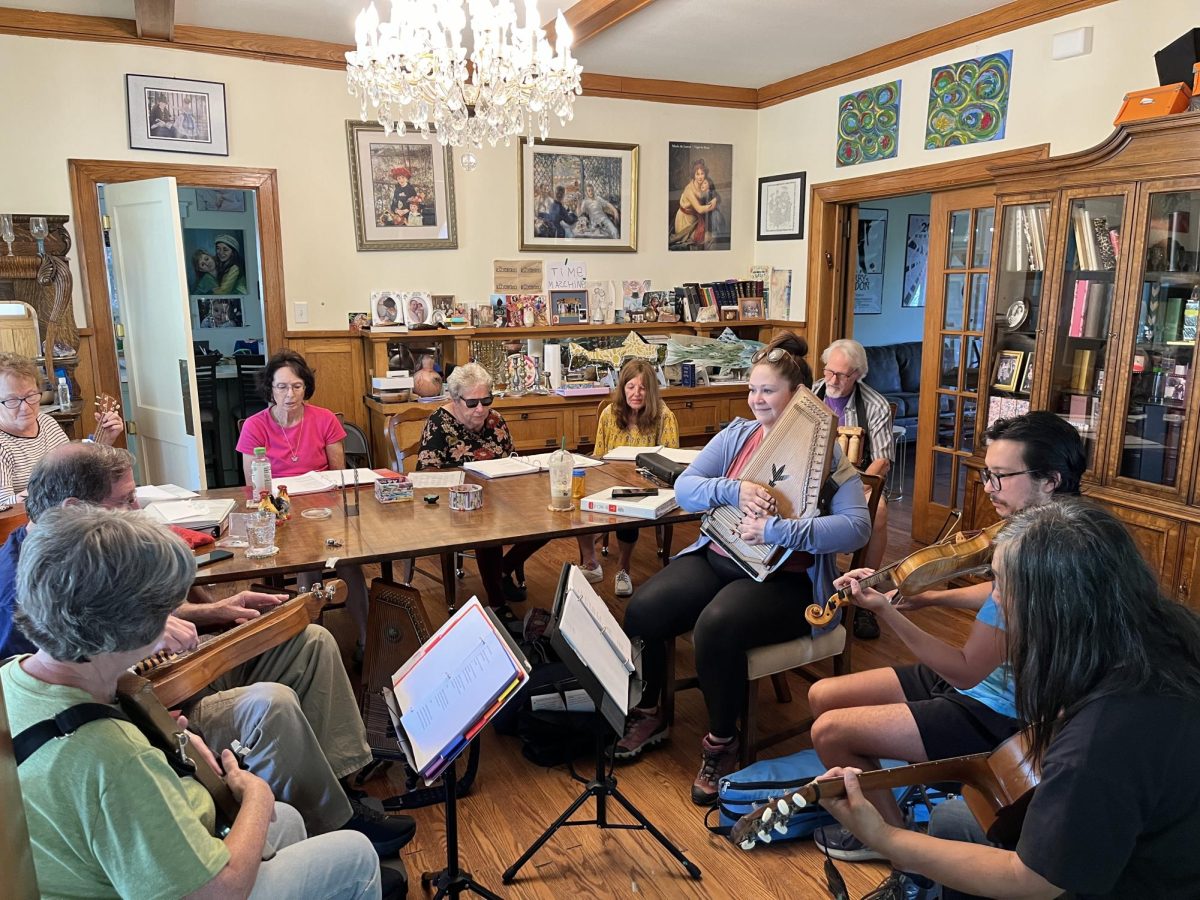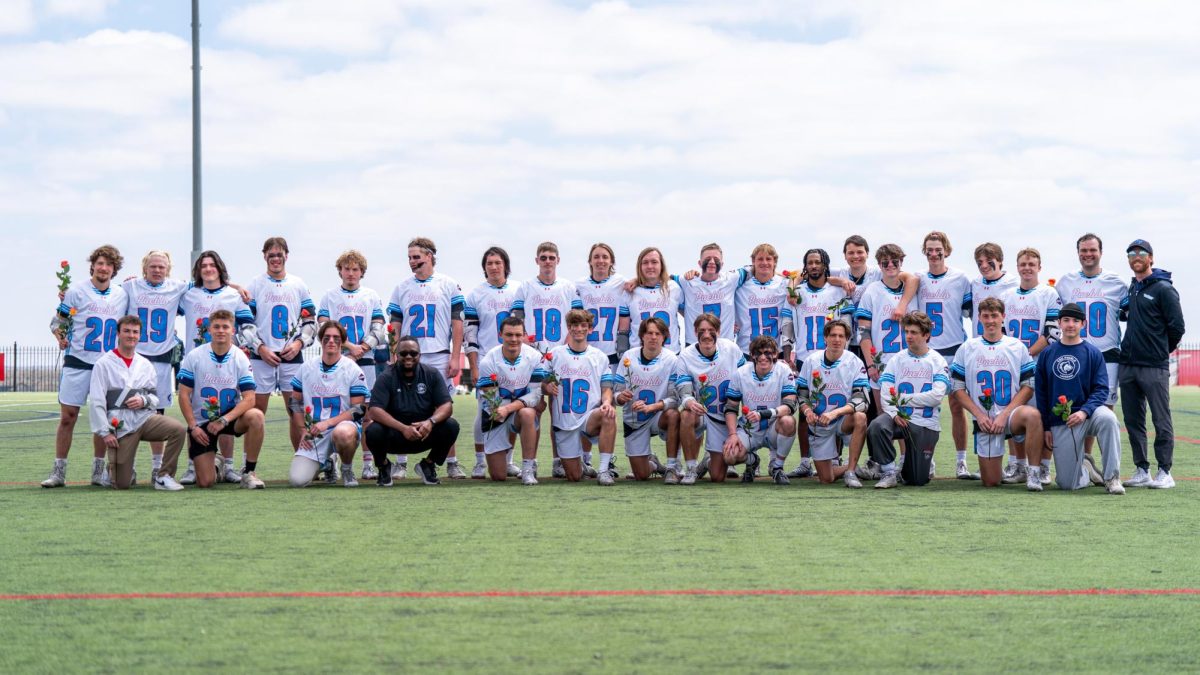Helping unfortunate people in Africa and Indonesia are not the first thoughts on many college students’ minds, but for one Colorado State University-Pueblo student, it’s all she anticipates doing.
Jennifer Joyce, a nontraditional student at CSU-Pueblo who began in the fall 2009, said she plans on using her anthropology degree to continue her humanity work in Africa and Indonesia.

Joyce said she began her humanity work in 2006 when she and her husband, Jim, went on a church mission with Temple Baptist Church to Africa to build homes and churches for people in the villages.
“The experience we had there changed our whole perspective on life,” she said.
That first experience in Africa was enough for them to decide what they wanted to do with their lives, Joyce said.
Joyce said she and her husband began a foundation named The Wings of Hope Foundation, whose motto is “changing the world one child at a time.”
The foundation focuses on providing clean water wells and working with Doctors Without Borders, an international medical humanitarian organization, to provide basic vaccinations for children, as well as providing mosquito nets for families in the villages, she said.
The mosquito nets are a very important item for these people, Joyce said, because malaria, a disease that is transferred by mosquito bites, kills a large number of people within Africa. She said it only costs $2 for the nets, but these families only live on $40 to $50 U.S. dollars a year per family.
“Spending $2 a family on a mosquito net, is like saying ‘well, are we not going to eat this month?’” Joyce said, “so it’s out of their hands.”
The foundation also focuses on educating the villages on diseases, she said, focusing specifically on HIV and AIDS.

Joyce said the foundation workers discovered that many villagers were not even aware of how they were contracting HIV or AIDS.
She said there was an instance where three young women from Colorado College, who were working as volunteers for the foundation, were educating a group of community leaders in Africa. The young women asked the group if they understood how they contracted AIDS, and there was a quick response given by one of the community doctors.
“That’s easy,” the doctor said. “By dirty water and bug bites, just like everything else.”
Since many of these villages get their knowledge from their village leaders and are very isolated, Joyce said the educating process taken by the foundation has to be very basic in explaining diseases.
For prevention purposes, they began an ABC program: A for abstinence, B for be faithful and C for condoms, she said.
Some of the racial Muslim villages are angered by the foundation bringing condoms to the villages, Joyce said. The foundation has to sell the condoms to the people, she said, and explain that they are not encouraging intercourse but are trying to prevent AIDS from spreading.
“Many people do not realize the type of privileged lives we live here in the U.S.,” Joyce said. Something as simple as medical care can be very complicated in places in like Africa and Indonesia, she said.
In Africa, if people have medical needs or emergencies, they must first purchase the supplies necessary for the doctor to treat them from a store similar to a pharmacy, she said. Then they may go to the hospital, but if they do not have all the necessities for the doctors to treat them, the hospital will send them away.
“You have to anticipate everything you’re going to need and take it with you,” Joyce said. “If you don’t have everything you need – needles or whatever it is – if you don’t have it, you have to go back and get it.”
In Indonesia, many villages do not have doctors or hospitals so they have to travel to the nearest facility, which may be miles away, she said, so many will never go to the doctor because they can’t afford to travel.

Joyce told of a time when she was traveling with a group in several sport utility vehicles on a highway in Indonesia, and they saw a large bus flip over and land on its roof. She said some of the people in the vehicles were nurses and paramedics, so they told the driver to pull over so they could help.
She said some of the local people in the vehicles said “No, you can’t. There’s nothing you can do.” Joyce said they tried to explain the people they were traveling with were trained to help with things like this, and they still refused to stop.
“Life is very dispensable; it’s not valued like us,” Joyce said.
In the U.S. we can have an ambulance in a couple minutes by calling 911, she said. It’s logical for us to help, but in third world countries they have a different logic. They understand that there is no medical care or transportation, Joyce said.
“It’s a different outlook on human life,” she said.
Another issue the foundation really focuses on is helping the orphaned children that live in these cities, Joyce said.
Helping the orphaned children is her passion, she said, and when there are issues between cities, the orphans are shipped into the African nation of Tanzania – the main country they did humanity work in – because it was a less volatile country.
Joyce said large groups that work in Mwanza, Tanzania, estimate 4 million orphans in their area alone and the hard thing for her is the Tanzania law that only allows 25 children to an orphanage, so no one can open a large facility to host all of them.
The other issue Joyce faces with the orphan children is the fact that many of these orphans are treated like trash by the villagers.
“They don’t want anything to do with the orphan kids. As far as they’re concerned, they’re rubbish,” Joyce said. “They won’t help them, they won’t go anywhere near them, they won’t feed them, and at the same time these kids are everywhere.”
When they were building their water wells, Joyce said, she remembered one orphan boy who would always have a baby tied to his back and a little child beside him. He would come to fill his bucket with water from the well and then carry the bucket away while all the other children in the village would stay and watch.
By the second or third day, she decided to find out what was going on with this child and why he wouldn’t stay and watch.
One of the local foundation workers spoke with him. Joyce said the woman told her both of the boy’s parents had died and he was a 6-year-old taking care of a 1-year-old girl. He carried her on his back and a 2-year-old girl followed by his side. He lived in a home he had created out of bushes and worked in the farming fields during the day.
![children of africa 2[1] Children of Africa. photo courtesy of Jennifer Joyce](https://csupueblotoday.com/wp-content/uploads/2009/10/children-of-africa-21.jpg)
Some other issues the foundation faces with the orphaned children is trying to teach them nutrition and trying to get local people to teach them a trade to go into a career.
She said the foundation found some villagers that were willing to take on a few children every few months and teach them their trade. They found a butcher, a brick maker and a few women who baked.
“Very small, we’re talking 10 to 12 kids being coached by someone, and we couldn’t even find any other businesses that were willing to take them on, “Joyce said. “What happens to them? They’re the future.”
In Indonesia there are more orphanages, she said, but their orphanages are like prisons. They put the children in orphanages and then close the doors.
“Maybe the kids will go to school, maybe they won’t. Maybe they’ll be taken care of, maybe they won’t,” Joyce said.
Also within the orphanages in Indonesia, the children are considered adults at the age of 13 or 14, so the children are then released into a world they have no knowledge of, Joyce said.
In turn, she said these children then get involved in selling drugs, prostituting or get involved with a group of racial Muslims, becoming a nuisance to the cities and villages.
Many of the orphans are not given choices in life, Joyce said, and they aren’t given that question of “so what do you want to be when you grow up,” and the foundation tries to help these children by getting them into schools or universities; to get them an education or a degree.
There has been success in Indonesia with getting children into schools and getting them educations, she said, so the foundation is really trying to push on the issue of educating these orphans. She said the programs in Indonesia are not comparable to what we have in the U.S., but it is descent and it will give the children a career.
After returning to the U.S. in mid-2009, Joyce said she is already anxious to return, and she plans to use her degree from CSU-Pueblo in anthropology to further the foundation’s outreach to different cultures.

While working with other cultures, Joyce said one thing the foundation workers try not to do is “westernize” the projects, and she said the foundation does that by hiring locals to help with the projects.
“By teaching them how we live isn’t going to do them any good,” Joyce said.
Joyce said they live in villages while they are in Africa or Indonesia and they keep their westernized business to themselves, such as checking e-mail later in the day when they are not with the group.
“It’s not a reality for them and it’s nothing that they’ll ever have,“ Joyce said, “and we try so hard to live in their cultures.”
They are the most incredible people you will ever met, Joyce said, and they are happy people who are always smiling.
She said they have a great sense of family and they love their families and they usually have multiple generations living under the same roof.
“There’s not a lot of bickering between the families,” Joyce said.
As a mother of nine children between the ages of 14 and 29, Joyce said as Americans, we could really learn something from the way Africa people value family.
“They’re united and we could probably learn something from that,” Joyce said.
While working in Africa, Joyce said her children stay with her mother or mother-in-law to allow them to continue their schooling. She said four of her children are in college and three are married.
For CSU-Pueblo students who want to get involved, Joyce said things as simple as knowing what’s going on around the world and finding an interest, whether it is education, or providing clean water and food, then acting upon that interest; even if that means just donating money to that cause.
“I think sometimes we get caught in a kind of tunnel vision of our own life and it happens to all of us,” Joyce said, “but it’s knowing what is going on and trying to make a change that counts.”
She said there are a lot of great projects out there and she encourages students to find a project that works with their own personal passions. Get involved, she said, even if you can’t go there. To support it is huge.
“We need to find something and leave a legacy,” Joyce said.










Jonathan N. Smith • Jul 21, 2010 at 1:19 pm
INGOs spend so much money on filed trips instead of the real emergencies. Are they really reaching to those in devastating sate.
There have been many calls all around the world to a save a life but are they really making impact or just having a very huge salary structure set aside for their staffs and enjoying all the benefits.
Well, there are lot of situations in Africa that have been ignore or forgotten. In my country Liberia, with the presence of the International Communities and Foreign Missions, there are still more work to be done.
Next month, My organization a local community base will launch a Project Title call: The Forgotten
Emergency
real pics will be shown then you can be the judge.
There are more hungry people in Liberia, there more communities cant afford mosquitoes nets and therefore Malaria rate is high,…..there are more unsafe wells for family and unsafe environment for children..
Kellie Curtis • Nov 5, 2009 at 11:49 am
Incredibly well written Brittney! I felt like I was in Africa again, you captured the moments Joyce portrayed wonderfully. I send out about 10-15 medical teams per year all over the world and there is such a need. I appreciate Joyce’s heart and “yes” you can make a difference one person at a time! I have seen many, many people go and have had their lives changed forever not to mention those they touched.
michelle • Nov 2, 2009 at 9:06 pm
Great story! Very interesting. Beautiful photos.